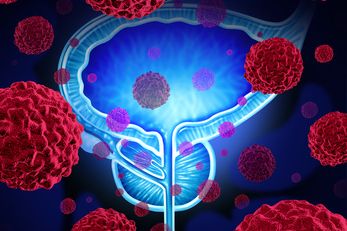
(Vienna, 28 May 2020) Why do cells in the body turn malignant? What are the effects of their uncontrolled proliferation on a person's health? And where exactly does this happen inside the body or the tumour? The answers to these questions are essential for choosing the cancer treatment that promises to be the most successful for an individual. In Vienna, researchers at the Ludwig Boltzmann Institute Applied Diagnostics at the Medical University of Vienna are working to make the diagnosis of prostate cancer more accurate and less invasive. But what does the individual patient want from his "best possible" treatment option?
Researchers from the fields of medical imaging and linguistics have come together with a long-standing champion of patient interests in the project "Patient Involvement in Oncology”, PATIO for short. They are jointly leading a project team focussed on developing a digital tool in consultation with affected members of the public. This tool will serve as a portal to enable the large community of men with prostate cancer and their relatives to have a voice. In this way, the team wants to feed this hitherto largely untapped wealth of experience back into research, so that specific approaches can be found for improving quality-of-life.The direct linking of specialised research and practical knowledge has the potential to challenge the current direction of prostate cancer research and to identify the key research questions. The project team is seeking answers to two questions:● What are the day-to-day challenges faced by patients and their relatives living with prostate cancer?● What coping strategies have patients and relatives developed to improve their quality-of-life following treatment?Patients will also benefit directly from the collective experience of others. Malignant changes to the prostate accounted for one quarter of all cancer diagnoses given to Austrian men in 2017. The affected group, which also includes relatives, is large and the need for treatment is therefore great. However, specialised research does not include any knowledge about what prostate cancer patients perceive as being successful treatment. All treatment options have their side-effects, which are accompanied by everyday challenges. "It is important for us to ensure that our research does not overlook the needs of the affected patients. We are gathering their insights, in order to generate medical knowledge going forward," explains Markus Mitterhauser, Director of the Ludwig Boltzmann Institute Applied Diagnostics at the Medical University of Vienna.PATIO will produce an information and support platform but will also create a unique, direct link to targeted research – keyword personalised medicine 2.0. They are therefore seeking six more people (out of a total of ten), who have been affected by prostate cancer and would like to share their wealth of experience. In everyday life, the disease also affects partners, sons and daughters, grandsons and granddaughters, close friends and other care-givers.It is all about learning from each other, since every one of us is an expert in his/her own field. Questions, challenges and solutions are all there. We are looking for men affected by prostate cancer who are interested in working with us to develop an online tool that can be used to feed the voices of patients at home into the relevant research.For more information and to contact us:https://www.applied-diagnostics.at/patio/#contact